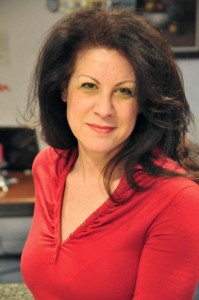Leading Change:
Transforming Business and Society in the Digital Age
Is it still true to say: plus ca change, plus c’est la meme chose?
I don’t believe this is true at present. Not in the Middle East at least – a prime example of how the more things change, the more change they bring. Jean-Baptiste’s epigram of 1849 is nothing more than a cliché used by sceptics today to downplay the enormity change especially in recent years, in what is known as ‘The Digital Age’. As the ancient Greek philosopher Heraclitus once said: ‘change is the only constant’ – ta panta rhei (in Greek), ‘Life is Flux’. Things do not stay the same. Les choses ne restent pas les mêmes.
The Middle East has shown its audacious face in this regard, as well as its resilience, its resolve and its determination. More than five years after the Arab uprisings or what became known as the ‘Arab Spring’, the dynamics of change in the Middle East are still at work. The role played by the internet and social media during these uprisings has been cited by many, but what is often overlooked is the role the internet and social media played in spreading information outside the region rather than inside it, acting more like a megaphone than a uniting force.
The digitisation of all levels of society and business has encapsulated the Middle East and has transformed the region. This transformation processes needs to be continued and consolidated, while at the same time, a political culture of accountability, transparency and participation needs to be supported and nurtured. But to do so requires building a firm foundation of human capabilities that is focused on leading change and that does not leave change to chance, to its ‘Heraclitan’ eventuality of flux.
So what are the three key issues in leading change in the Middle East – in transforming business and society in the digital age?
The first issue is navigating complexity.
The Middle East is probably the most complex region of the world. The myriad social, political, economic and religious cleavages of the region often make it difficult to navigate and thus to lead in a strategically actionable way. Erin Meyer, Professor of Organisational Behaviour at INSEAD, is a specialist on leading change through ‘culture mapping’. She provides a framework for navigating complexity by focusing on breaking through the invisible network boundaries of business and society. Her ‘culture map’ consists of eight scales that are based on decades of academic research and practical application in a wide variety of settings.
These eight scales and their metrics are:
(i) communicating, on a scale of high- to low- context;
(ii) evaluating, on a scale from frank to diplomatic;
(iii) persuading, on a scale of holistic to specific thought patterns;
(iv) leading, on a scale of egalitarian to hierarchical;
(v) deciding, on a scale of degree of consensus-building;
(vi) trusting, on a scale of cognitive to affective;
(vii) disagreeing, on a scale of helpful to harmful; and
(viii) scheduling, on a scale of ‘monochronic’ to ‘polychronic’.
Understanding these scales provides a valuable map on navigating complexity when leading change in the Middle East.
The second issue is formulating a digitisation strategy.
Transforming business and society in the digital age requires formulating a strategy around the digitization process. Joerg Niessing, Executive Director of INSEAD’s elab, notes that adapting to the ongoing digitisation of the economy, and of society in general, is arguably the most challenging transformation every leader is facing. Digital media and application platforms are now driving a new revolution, creating richer dynamics between people and disrupting business. Digital tools have broken the monopoly of the media, enabling everyone to become a publisher. But, even though digital technologies are changing the rules of every industry, one rule has not changed at all: customer centricity and customer orientation. Niessing notes three lessons to remember when building your digitisation strategy.
First, niche trumps average. Deep-but-narrow has often become a more viable strategy than shallow-but-broad, especially when engaging with online communities.
Second, market lifestyle, not technology. Brands are even more important in the digital world.
Third, simplify the approach. In today’s digital world, customers want a consistent and seamless experience across all touchpoints. The moment complexity arises, they start looking for alternatives.
The third issue is organising for creativity and innovation.
Noah Askin, Professor of Organisational Behaviour at INSEAD looks at the antecedents and consequences of creativity and innovation. He believes that although good organisation design can facilitate the innovation process, one must first understand the nature of ‘new ideas’ and how to generate them. But the system must be able to tolerate failure.
About the author
Dr. Frances Tsakonas, is an internationalisation expert with over 40 years of experience in the education sector. She holds advanced degrees from Harvard and Oxford Universities, and a doctorate in Higher Education Internationalisation from the Institute of Education, University of London.
To learn more about leading change – transforming business and society in the digital age, join our INSEAD Executive Education program on the Greek island of Santorini from June 4 to 8, 2018. The key questions that this program will address are:
- How can leaders engage and motivate others to affect change?
- What are the macroeconomic developments that shape business and society that leaders need to be abreast of?
- How has digital innovation come to play a key role in leading change?
- Why is cross-cultural leadership so vital in today’s diverse and complex world?
For more information see www.sigexed.org or contact info@sigexed.org





























